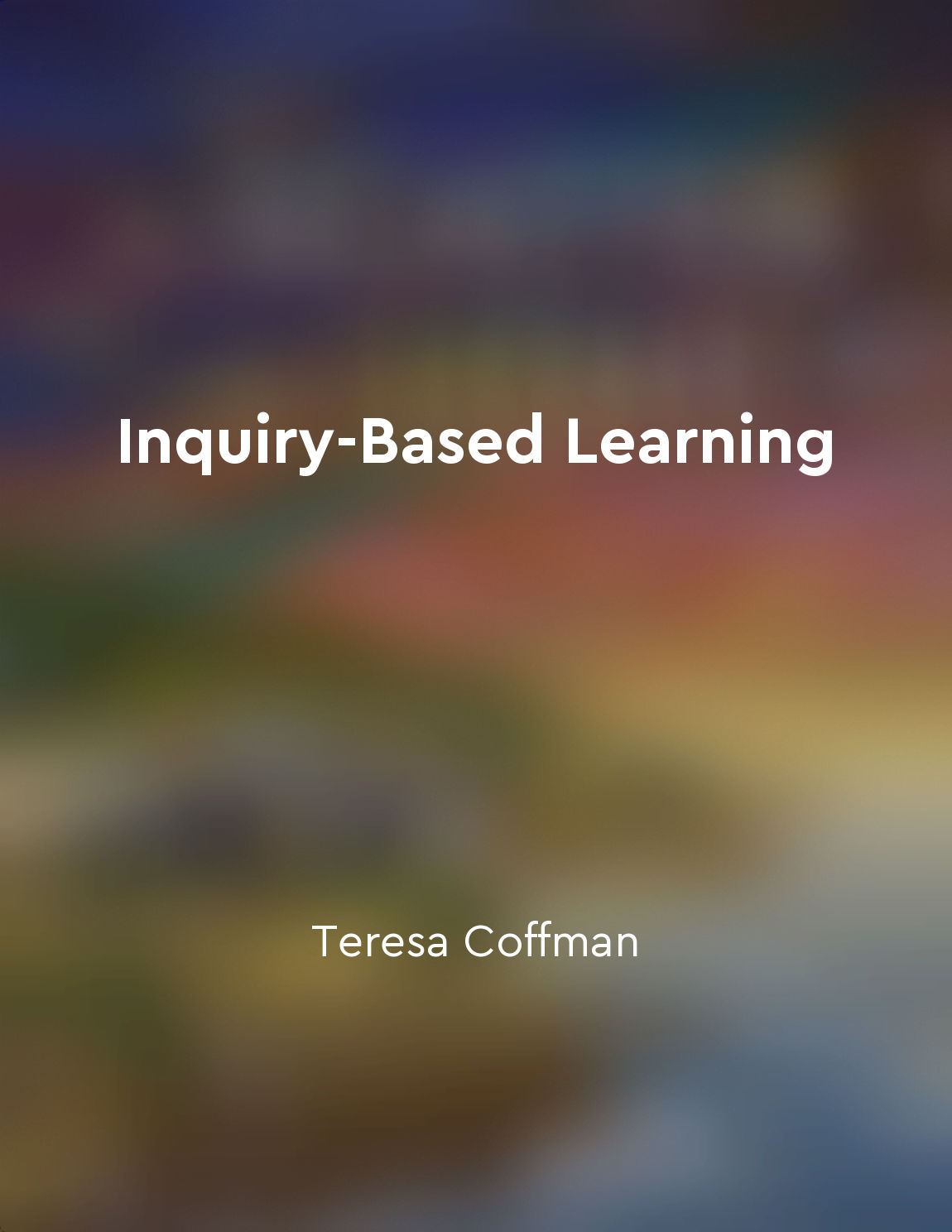Students should be taught how to think, not what to think from "summary" of Creative Schools by Sir Ken Robinson, PhD,Lou Aronica
The essence of education is not merely to fill students' minds with information and ideas, but to empower them with the skills and abilities to think critically and creatively for themselves. This fundamental principle lies at the heart of a truly transformative educational experience. When students are taught how to think, rather than what to think, they are equipped with the tools necessary to navigate an increasingly complex and rapidly changing world. By fostering a culture of inquiry, exploration, and discovery, educators can nurture students' innate curiosity and cultivate their capacity for independent thought. This requires creating learning environments that value questions as much as answers, where students are encouraged to challenge assumptions, seek out multiple perspectives, and make connections across disciplines. In doing so, students learn to approach problems with flexibility, adaptability, and resilience. Teaching students how to think involves more than just imparting knowledge or developing specific skills; it requires instilling in them a lifelong love of learning and a sense of agency over their own intellectual development. This means moving beyond traditional models of instruction that prioritize rote memorization and standardized testing, and instead embracing approaches that emphasize collaboration, experimentation, and real-world application. In order to cultivate a generation of critical thinkers and creative problem solvers, educators must be willing to take risks, experiment with new pedagogical strategies, and challenge the status quo. This requires a willingness to rethink traditional notions of teaching and learning, and to create opportunities for students to engage in authentic, meaningful experiences that allow them to apply their knowledge and skills in relevant contexts.- By teaching students how to think, rather than what to think, educators can help them develop the intellectual dexterity and emotional intelligence needed to thrive in an increasingly diverse, interconnected, and unpredictable world. In doing so, they can empower students to become active participants in their own learning journey, capable of shaping their own destinies and making a positive impact on the world around them.
Similar Posts
Engaging content for young learners
The concept of engaging content for young learners is vital in educational materials, especially in a book like 'EHF Math Olymp...
Critical thinking requires practice
Critical thinking is not a skill that one is born with; rather, it is something that must be developed through practice and ded...
Encouraging curiositydriven exploration
Encouraging curiosity-driven exploration is a fundamental concept in the process of learning. When students are motivated by cu...
Homework should be meaningful and relevant to student learning
The kind of homework that helps students learn the most is the kind that's designed to help them understand what they've been t...
Foster a culture of thinking in the classroom
To create a culture of thinking in the classroom, educators must first recognize the importance of making thinking visible. Thi...
Use thinking routines to guide and scaffold students' thinking
Thinking routines are powerful tools that educators can use to support and enhance students' thinking. By providing a structure...
Emphasize the process of thinking over the end product
When we focus on the process of thinking rather than the end product, we are encouraging students to engage in deeper reflectio...
Support students in finding their passion
Helping students discover their passion is a vital part of education. It is about more than just guiding them towards a career ...
Reading comprehension dependent on vocabulary knowledge
The idea that reading comprehension is heavily reliant on vocabulary knowledge is crucial to understanding the challenges faced...

Encouraging critical thinking is essential
Encouraging critical thinking is an indispensable element of the inquiry-based learning process. Critical thinking enables stud...

